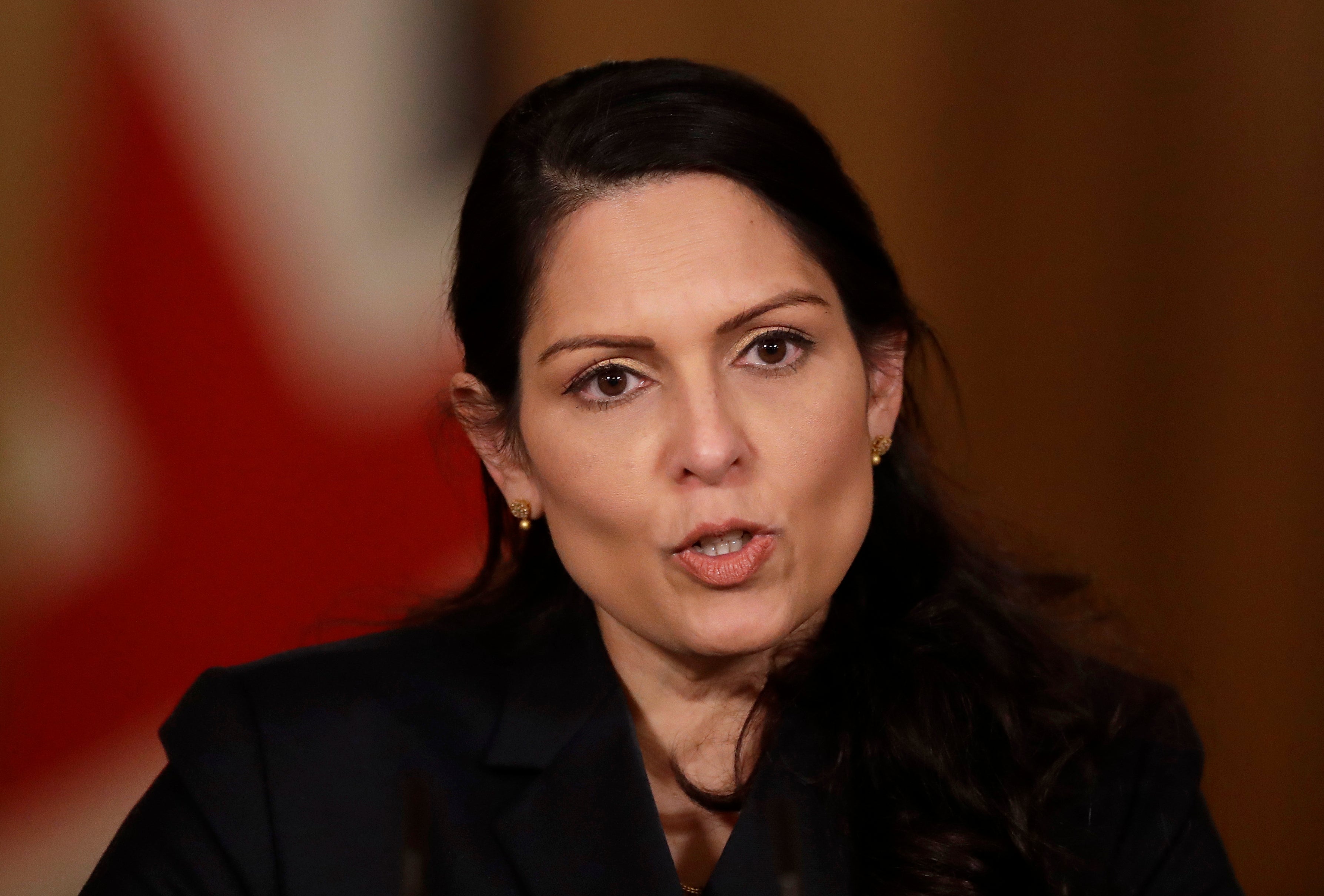What does Home Secretary’s new digital border scheme mean for holidays?
Priti Patel promises ‘wholesale reform’ of country’s borders

Your support helps us to tell the story
From reproductive rights to climate change to Big Tech, The Independent is on the ground when the story is developing. Whether it's investigating the financials of Elon Musk's pro-Trump PAC or producing our latest documentary, 'The A Word', which shines a light on the American women fighting for reproductive rights, we know how important it is to parse out the facts from the messaging.
At such a critical moment in US history, we need reporters on the ground. Your donation allows us to keep sending journalists to speak to both sides of the story.
The Independent is trusted by Americans across the entire political spectrum. And unlike many other quality news outlets, we choose not to lock Americans out of our reporting and analysis with paywalls. We believe quality journalism should be available to everyone, paid for by those who can afford it.
Your support makes all the difference.The home secretary has promised “wholesale reform” of the UK’s immigration system, part of which will see more red tape for Europeans travelling to the country on holiday.
Priti Patel is set to confirm a new “digital border” that will require all visitors to Britain to fill out more forms and possibly pay extra fees.
She claims this new US-style Electronic Travel Authorisation will make the border more secure by automatically checking for criminals from other countries and allowing more accurate statistics to be gathered.
But what exactly does it mean for holidaymakers? Here’s what we know so far.
What forms will inbound tourists have to fill out?
The digital visa system, known as the Electronic Travel Authorisation (ETA), operates in a similar way to the US’s Esta. All eligible foreign travellers to the UK, including those entering from the EU, will have to apply for an ETA, which will automatically determine the eligibility of travellers to enter the country, according to Patel.
The Home Office expects around 30 million ETA applications to be made each year.
According to the ETA website, the form takes 10-15 minutes to complete and an ETA can be applied for any time up until a few days before travel.
“Once your information has been sent to the UK your application is normally processed and a response is normally given within 48-72 hours,” it states.
After the ETA visa waiver has been approved, it entitles the holder to a single entry into the country. Visitors will then be allowed to spend up to 180 days (six months) in the UK and to visit any part of the country.
“Our new fully digital border will provide the ability to count people in and out of the country, giving us control over who comes to the UK,” said Patel.
Part of the impetus for introducing a new system was recent evidence suggesting that migration estimates had been wildly miscalculated. It was previously assumed that around three million Europeans lived in Britain who would apply for settled status under the government’s EU Settlement Scheme (EUSS).
In reality, 5.4 million applications were received by the end of April 2021, 4.9 million of which have been approved.
How much will tourists have to pay?
It remains unclear how much the scheme will cost for visitors to the UK. Based on the US Esta process, the price shouldn’t be too prohibitive; theirs costs $14 (about £9) per person.
Will we have to pay to go to Europe?
Yes. Now that the UK has left the EU with a hard Brexit deal, we are technically a “third country” and will be treated as such. The EU plans to launch its own digital visa system – European Travel Information and Authorisation System (Etias) – by 2023. The EU has confirmed that British citizens will be eligible for Etias, meaning UK nationals will not need a visa for short stays in Europe but that an Etias visa waiver will be required.
It’s expected to cost €7, and will then be valid for three years or until the associated passport expires.
When will the UK’s ETA be introduced?
It already exists – it was first launched in 2014 but up until now has only been available to citizens of four Middle Eastern countries.
But the plan is to roll it out to all visitors from non-visa national (NVN) countries and European Economic Area (EEA) countries coming to Britain for tourism and business purposes.
The Home Office says the British scheme is expected to be fully in place from 2025.
Join our commenting forum
Join thought-provoking conversations, follow other Independent readers and see their replies
Comments